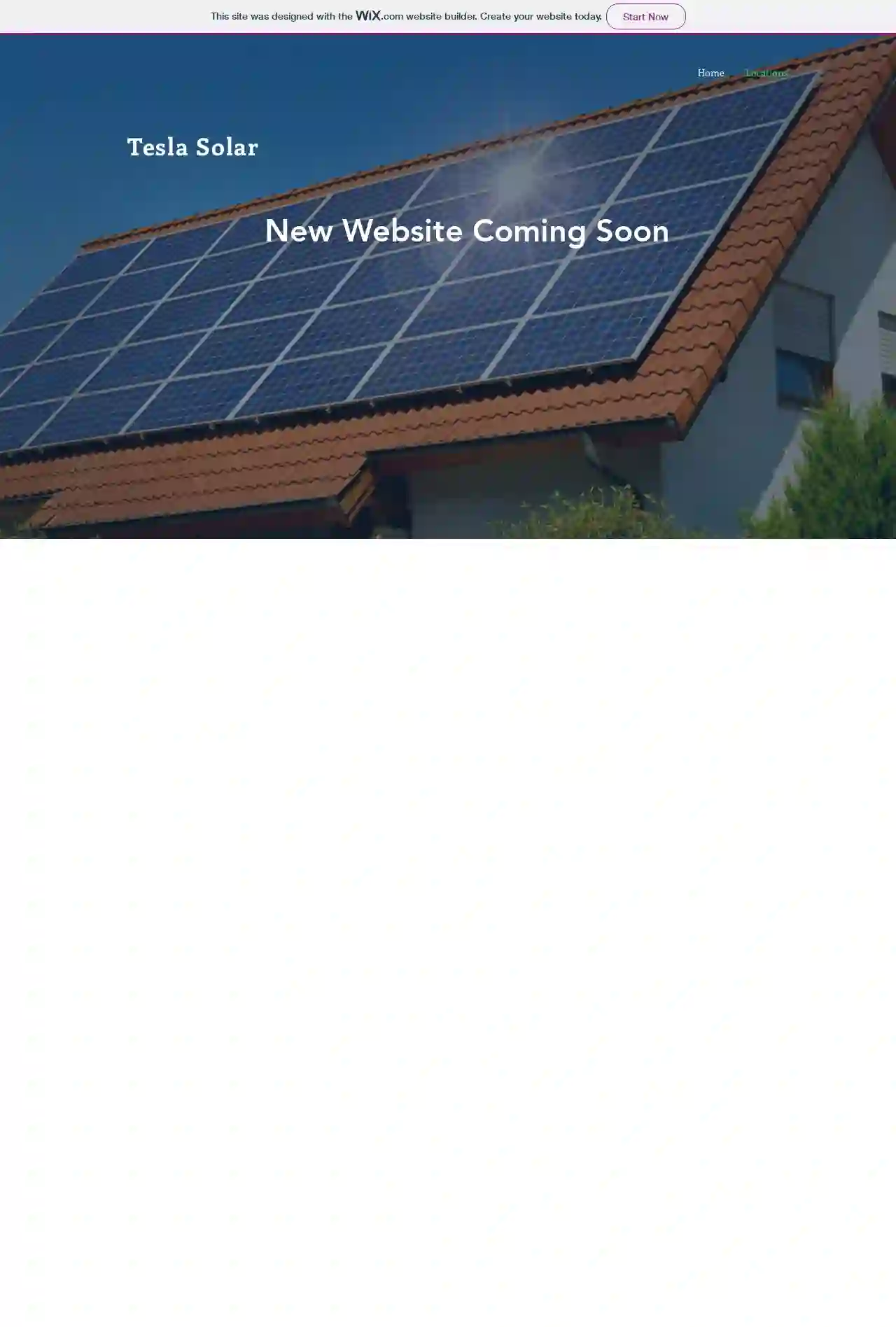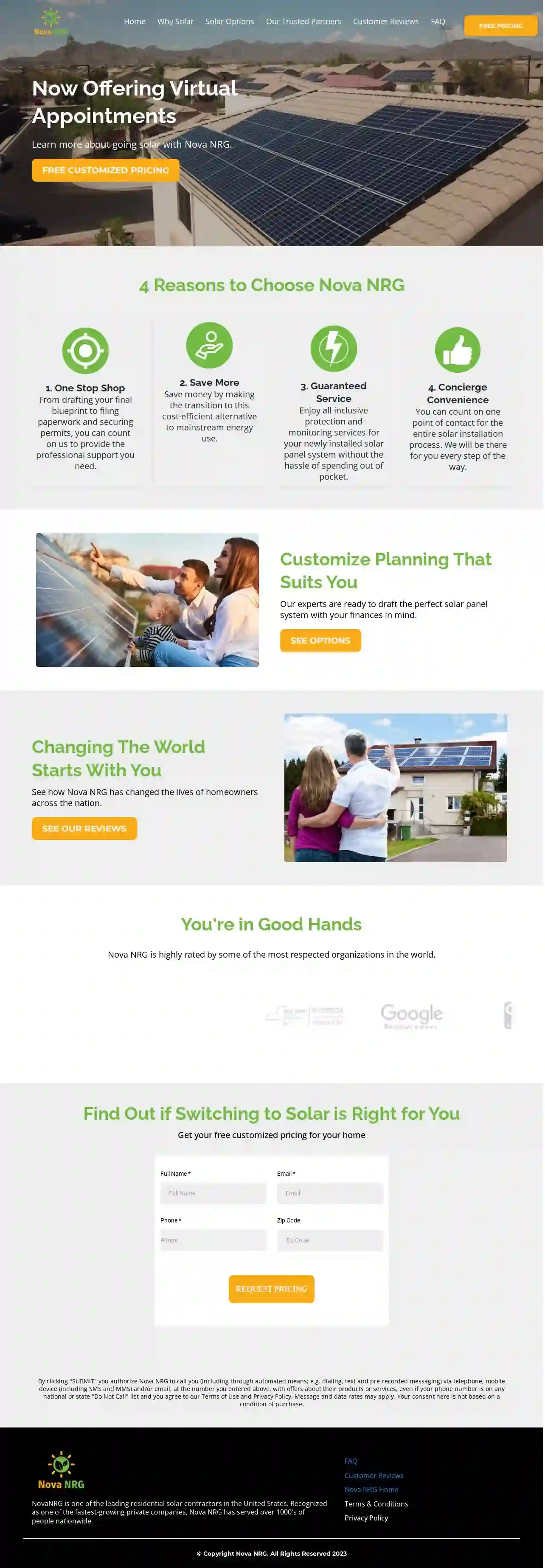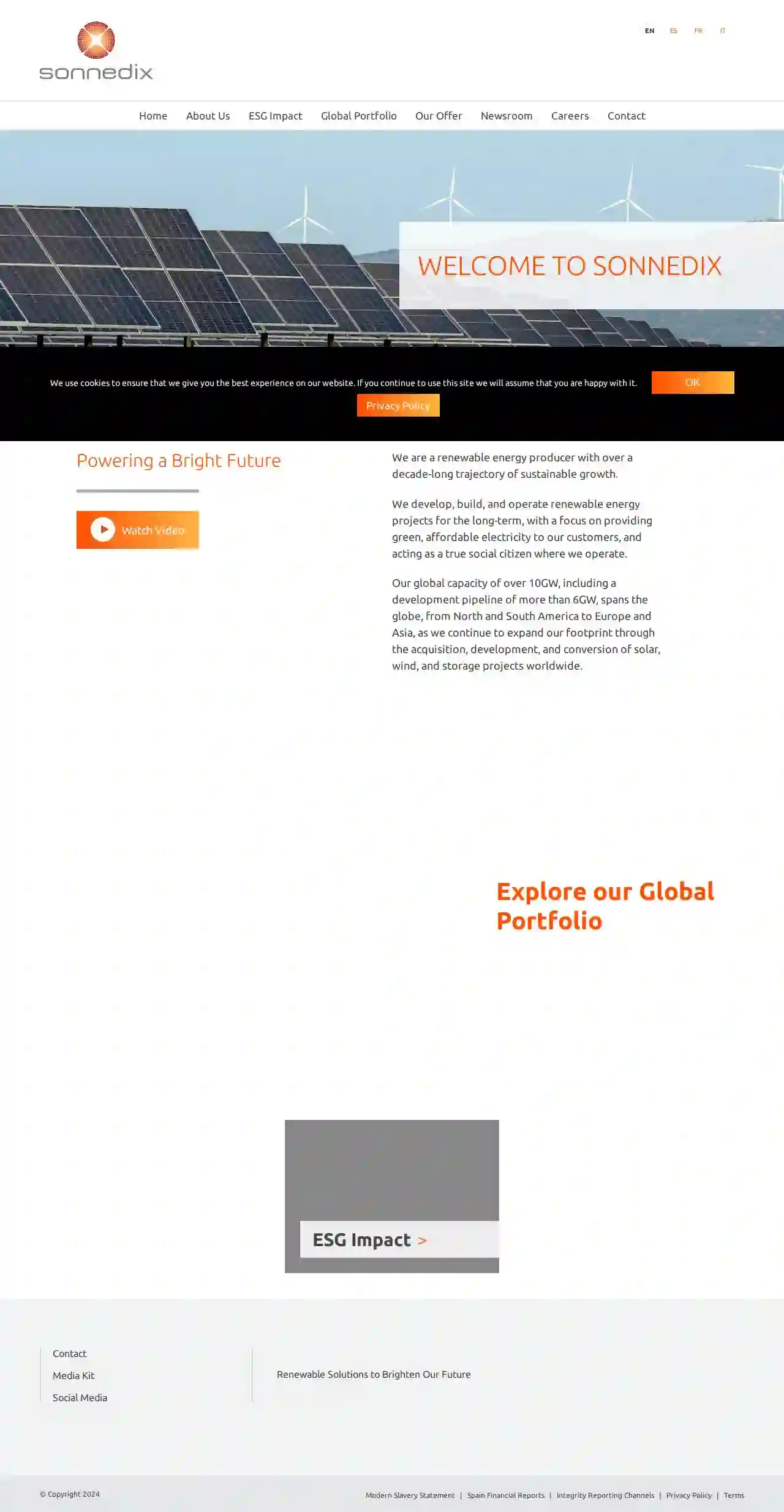Solar Installers Sanford
Top 10 Solar Energy Companies in Sanford
Receive multiple Solar Contractors quotes for your project today! Compare profiles, reviews, accreditations, portfolio, etc... and choose the best service.

LPL Solar
14 reviews123 Solar Way, Suite 100, Solar City, 12345, USLPL Solar is a leading EPC in North America, focusing on self-performing projects with an emphasis on safety, efficiency, and cost reduction. Our leadership team has unmatched construction experience and solar expertise, making us one of the best EPCs in the industry.
- Services
- Why Us?
- Our Team
- Gallery
Get Quote
GTFPower
58 reviews301 North Pine Meadow Dr., DeBary, 32713, USGTFPower is a leading provider of solar solutions, offering a range of services including solar system purchase, monthly solar loan, full amount solar lease, and solar storage solutions. With a focus on sustainability and energy efficiency, GTFPower aims to help customers reduce their energy costs and contribute to a greener future. The company serves various states including AZ, CO, FL, OK, TX, and WY, and offers customized solar plans tailored to individual needs.
- Services
- Why Us?
- Accreditations
- Our Team
- Testimonials
- Gallery
Get Quote
Solaria Solar and Roofing
4.9336 reviews4071 LB McLeod Rd, Suite E, Orlando, 32811, USSolaria Solar and Roofing is a leading provider of solar panel installations and premium roofing services in Central Florida. Our team of experts is dedicated to guiding you towards a more sustainable and secure future by offering competitively priced, high-quality solutions that can minimize your carbon footprint and potentially eliminate your power bill.
- Services
- Why Us?
- Accreditations
- Our Team
- Testimonials
- Gallery
Get Quote
Sun City Solar
518 reviews123 Solar Way, Suite 100, Phoenix, 85001, USSunCitySolarPower is on a mission to make solar energy accessible and affordable for everyone. With over 10 years of experience in the solar installation industry, they have successfully completed over 500 installations and are committed to providing high-quality services to all their customers.
- Services
- Why Us?
- Accreditations
- Our Team
- Testimonials
- Gallery
Get Quote
JSD Solar
Miami Lakes, FL, 8303 Balgowan Rd, 33016, USJSDSOLAR is a leading provider of solar power systems, offering a wide range of products and services designed to meet the energy needs of homes and businesses. With a focus on quality, reliability, and customer satisfaction, JSDSOLAR provides comprehensive solutions for those looking to harness the power of the sun. From solar panels and inverters to lithium batteries and complete solar power systems, JSDSOLAR has the expertise and resources to help individuals and organizations reduce their reliance on traditional energy sources and transition to a more sustainable future.
- Services
- Why Us?
- Accreditations
- Our Team
- Testimonials
- Gallery
Get Quote
Next Level Solar USA
4.713 reviews123 Solar Street, Suite 100, Solar City, 12345, USSolar panel installation can protect you against the big energy companies with increasing electricity rates. Going solar not only does reduce electricity costs by making available one of the most abundant yet pristine natural resources, but it also produces clean Energy, making solar power the most affordable way to power your home. Next Level Solar is here to help you transition from high energy consumption and inefficiency to a technologically, economically, and environmentally enhanced home and work life. We provide the solutions to your electric bill. THE FUTURE OF ENERGY IS NOW
- Services
- Why Us?
- Accreditations
- Our Team
- Testimonials
- Gallery
Get Quote
Tesla Solar
2829 N Federal Hwy, Ft Lauderdale, FL, 33306, USTesla Solar is a leading provider of solar panel solutions, offering top-quality services across multiple locations including Sarasota, Aventura, Boca Raton, Miami, Ft Lauderdale, Ft Myers, Jacksonville, Merritt Island, Naples, Orlando, Agoura Hills, Burbank, Calabasas, Pasadena, Santa Monica, West Covina, Pomona, Norwalk, La Mirada, Downey, and more. Our mission is to provide sustainable energy solutions to our clients, ensuring a greener future for all.
- Services
- Why Us?
- Accreditations
- Our Team
- Testimonials
- Gallery
Get Quote
WattSun Solar and Roofing
4.9104 reviews2578 Clark St., Suite 5A, 2578 Clark St. Suite 5A, Apopka, 32703, USWattSun Solar and Roofing is a local, family-owned business dedicated to providing personalized and customer-centric solar and roofing solutions. With a vested interest in maintaining a strong reputation, we prioritize attentive service, tailored solutions, and ongoing support. Our team of experts is committed to exceeding expectations and building lasting relationships with our clients.
- Services
- Why Us?
- Accreditations
- Our Team
- Testimonials
- Gallery
Get Quote
Nova NRG
4.9121 reviewsBeverly Hills, CA, 123 Solar Way, 90210, USNova NRG is a leading residential solar contractor in the United States, recognized as one of the fastest-growing private companies. They have served over 1000's of people nationwide. Nova NRG offers a one-stop shop for solar installation, including drafting final blueprints, filing paperwork, and securing permits. They provide cost-efficient solar options, guaranteed service, and concierge convenience with a single point of contact throughout the installation process.
- Services
- Why Us?
- Accreditations
- Our Team
- Testimonials
- Gallery
Get Quote
Sonnedix USA Services Limited
53 reviewsMadrid, Spain, C/ Principe de Vergara 108, 28002, USSonnedix is a leading international renewable energy producer with over a decade-long trajectory of sustainable growth. They develop, build, and operate renewable energy projects for the long-term, focusing on providing green, affordable electricity to customers and acting as a true social citizen where they operate. Their global capacity of over 10GW spans the globe, from North and South America to Europe and Asia, as they continue to expand their footprint through the acquisition, development, and conversion of solar, wind, and storage projects worldwide.
- Services
- Why Us?
- Accreditations
- Our Team
- Testimonials
- Gallery
Get Quote
Over 4,210+ Solar Contractors registered
Our solar companies operate in Sanford & surrounding areas!
SolarCompaniesHub has curated and vetted the Best Solar Installers in and around Sanford. Find a top & trustworthy business today.
Frequently Asked Questions About Solar Installers
- Draw electricity from the grid when your solar panels aren't producing enough power (e.g., at night)
- Sell excess solar electricity back to the grid through net metering.
- Keep Panels Clean: Clean panels periodically to remove dirt, debris, and bird droppings, which can reduce efficiency. Rainfall usually cleans panels adequately, but you might need to hose them down occasionally.
- Visual Inspections: Regularly inspect panels for signs of damage, loose wiring, or other issues.
- Professional Maintenance: Consider having a professional solar installer inspect your system every few years to ensure optimal performance.
What is the difference between grid-tied and off-grid solar systems?
What happens to my solar panels during a power outage?
How do I maintain my solar panels?
What is the lifespan of solar panels?
What is the difference between grid-tied and off-grid solar systems?
- Draw electricity from the grid when your solar panels aren't producing enough power (e.g., at night)
- Sell excess solar electricity back to the grid through net metering.
What happens to my solar panels during a power outage?
How do I maintain my solar panels?
- Keep Panels Clean: Clean panels periodically to remove dirt, debris, and bird droppings, which can reduce efficiency. Rainfall usually cleans panels adequately, but you might need to hose them down occasionally.
- Visual Inspections: Regularly inspect panels for signs of damage, loose wiring, or other issues.
- Professional Maintenance: Consider having a professional solar installer inspect your system every few years to ensure optimal performance.

